Top Legal Industry Trends
to Watch in 2025
Top Legal Industry Trends
to Watch in 2025




How does Legal Tools help in Trial Prep ?
Securely upload your case files
and the system will analyze your
input based on specific
jurisdictions










How does Legal Tools help in Trial Prep ?
Get advanced analytics and predictive reports tailored to your
case, such as key elements, case strategy, judge analysis, and etc
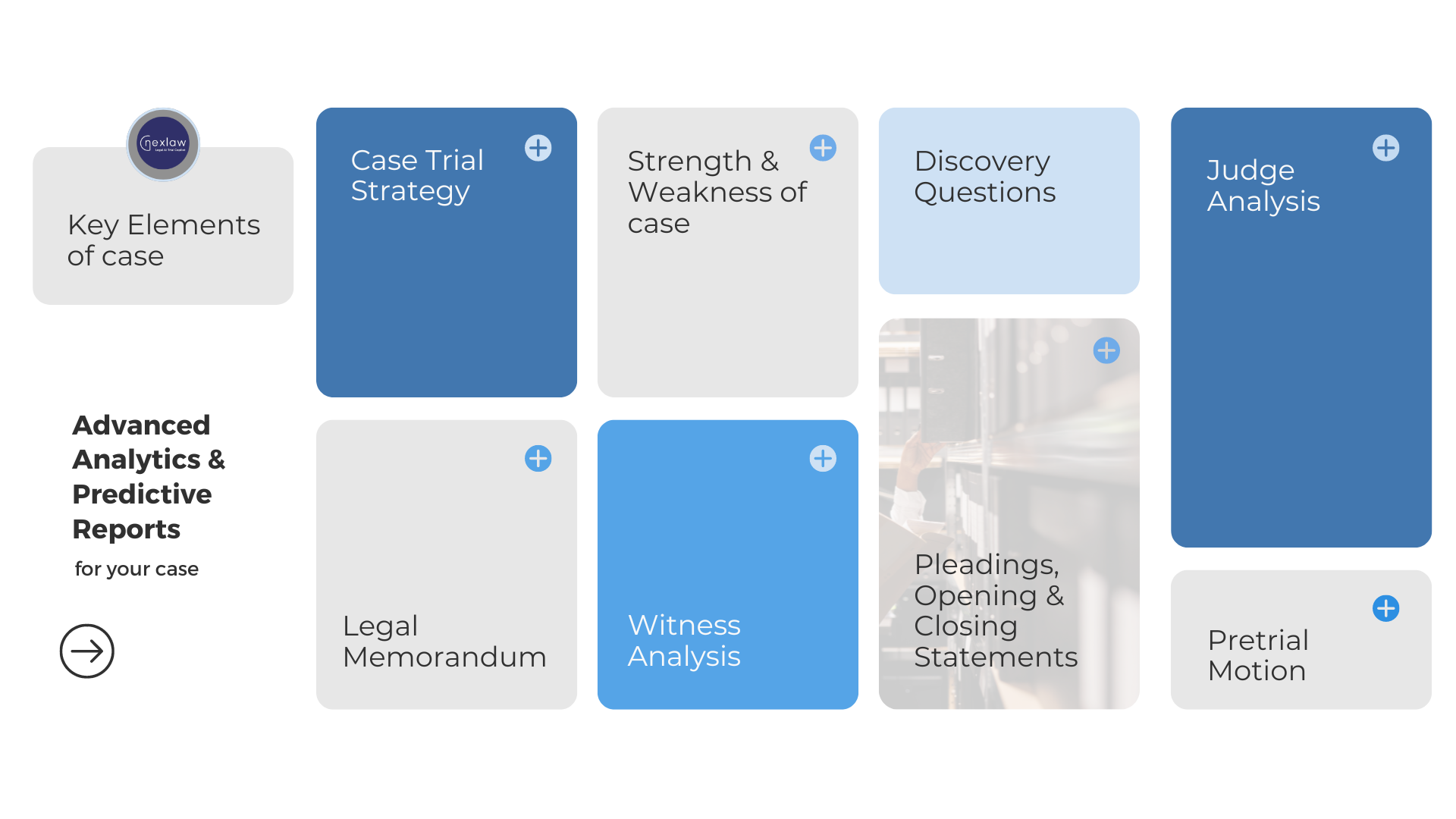

How does Legal Tools help in Trial Prep ?
Upload new evidence during the trial for
instant analysis and updated insights


How does Legal Tools help in Trial Prep ?
Get instant answers to
any questions regarding your case
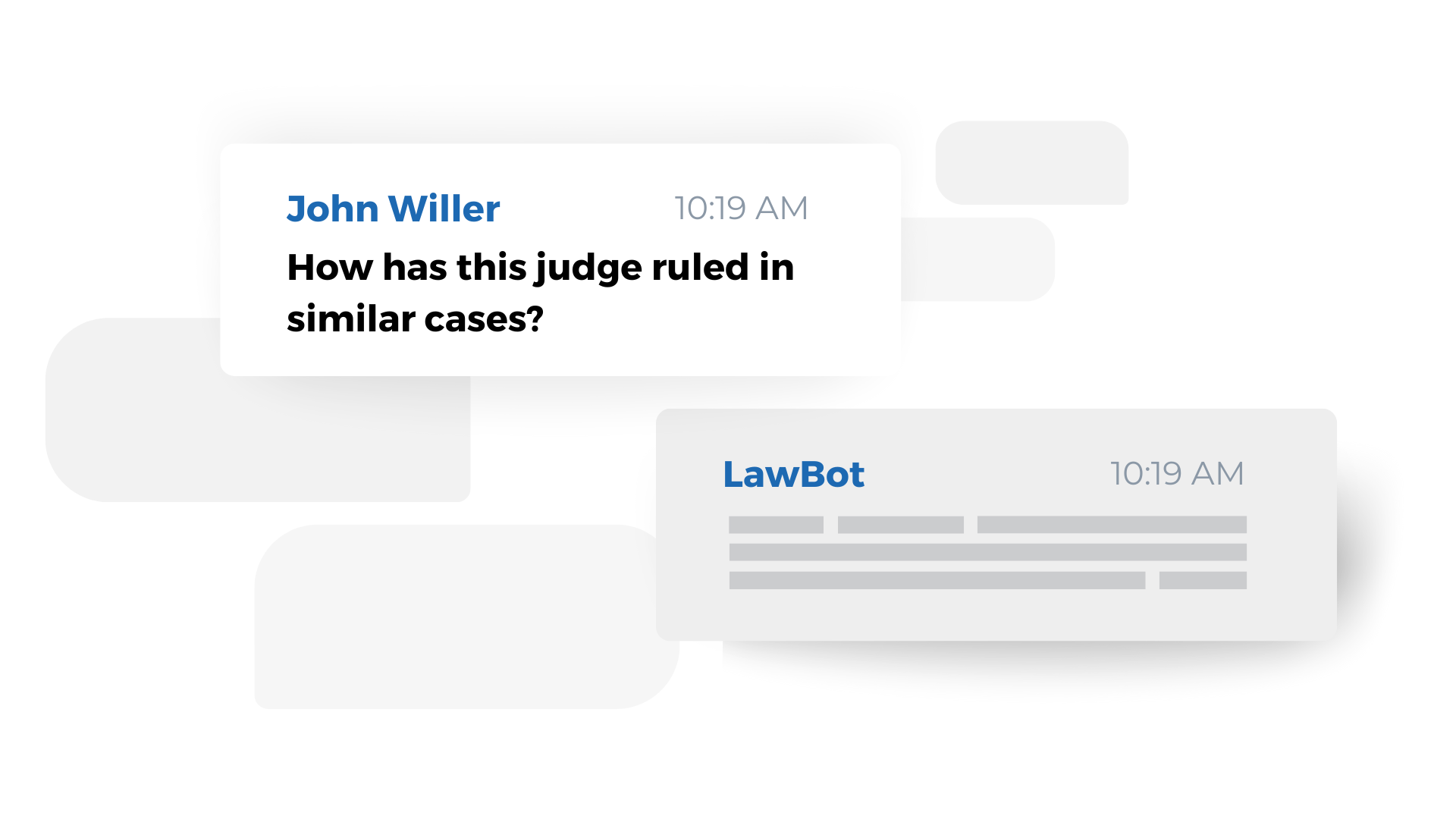

How does Legal Tools help in Trial Prep ?
Receive a comprehensive final brief ready
for submission at the end of the trial
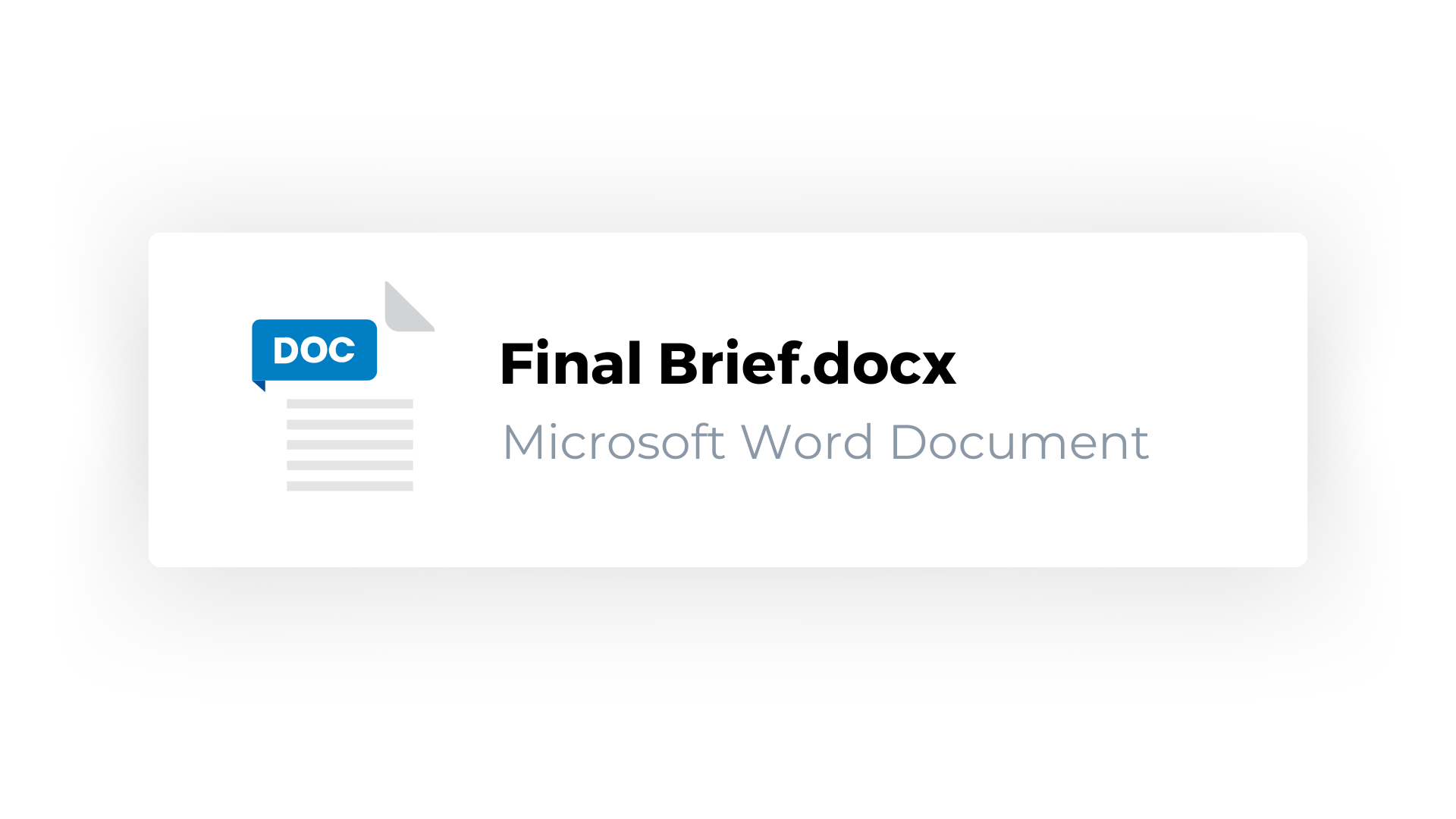



Legal AI Trial Copilot for dispute
litigation analytics and trial strategy
NexLaw streamlines your entire litigation process
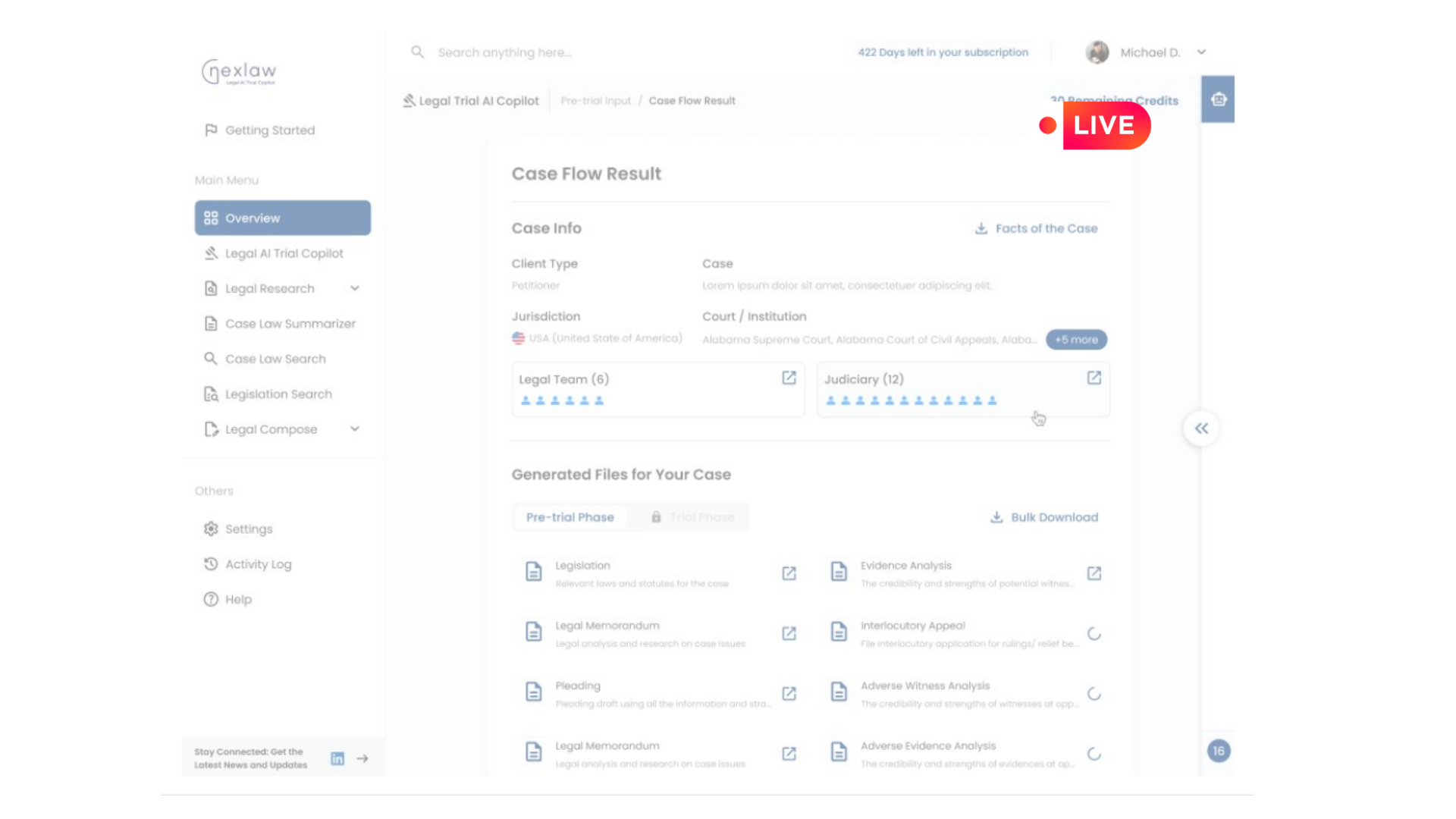

Book a Live Demo
with Us Now
Here are the legal industry trends to watch in 2025
As we approach 2025, the legal industry is bracing for transformative changes that will shape its future. From advancements in legal technology to shifts in client expectations and regulatory landscapes, staying ahead of emerging trends is more important than ever. Here are the key trends that legal professionals should watch closely to remain competitive and prepared for the year ahead.
The litigation landscape is evolving rapidly, with key developments in 2024 setting the stage for significant changes in 2025. The anticipated end of Chevron deference may not eliminate corporate liability but could lead to more nuanced interpretations of regulatory statutes, reshaping corporate responsibilities.
At the same time, legal challenges to Diversity, Equity, and Inclusion (DEI) programs are raising critical questions about their future viability and impact on workplace diversity strategies. Meanwhile, Meta’s release of an open-source large language model (LLM) has intensified debates around intellectual property and fair use, compelling courts to confront novel legal questions in an AI-driven era.
These shifts highlight the growing complexity of litigation, demanding close attention from legal professionals.
The world of transactions and contracts is undergoing significant transformation, with emerging forces reshaping commercial and corporate dealmaking. The recent surge in going-private transactions raises the question of whether this signals a broader trend in dealmaking strategies. Meanwhile, evolving risks in supply chains—both domestic and international—are prompting businesses to reevaluate their operations and risk mitigation practices.
Additionally, recent SEC actions against major banks and OpenAI are poised to influence how Non-Disclosure Agreements (NDAs) are structured, potentially setting new standards for confidentiality and liability in commercial agreements. These shifts underscore the dynamic nature of the market, requiring businesses and legal professionals to stay agile and adaptive.
The rapid rise of generative AI is transforming the legal profession and will continue to do so in 2025, raising critical legal and professional questions. One key debate center on whether AI oversight will mirror EU-inspired state privacy laws or adopt a voluntary nationwide cybersecurity framework, shaping regulatory approaches and compliance requirements.
Additionally, as AI increasingly automates tasks like contract drafting, questions arise about the future relevance of foundational drafting skills for early-career transactional attorneys. These developments highlight the need for legal professionals to adapt to AI’s growing influence while navigating the complex ethical and regulatory challenges it presents.
Besides, legal AI is no longer a luxury—it’s becoming essential. AI tools are improving efficiency and accuracy across the board. Firms adopting these technologies are gaining a competitive edge.
Regulatory and compliance landscapes are poised for significant shifts, with evolving corporate risks demanding heightened attention. Corporate climate goals are expected to face increased scrutiny from investors, driving businesses to substantiate their environmental commitments with greater transparency and accountability.
At the same time, the surge of state privacy laws enacted last year signals the beginning of a more fragmented and complex regulatory environment, requiring companies to navigate a patchwork of compliance obligations. These trends underscore the growing importance of proactive legal strategies to address emerging risks and maintain compliance in an increasingly demanding regulatory climate.
The practice of law is undergoing significant change as firms and in-house legal teams navigate evolving challenges that could reshape legal careers. Law firms are finding ways to counter anti-DEI lawsuits while maintaining their programs, offering a roadmap for corporations facing similar pressures. High-tech project management software is beginning to gain traction in a profession still dominated by email, signaling a gradual shift toward more efficient workflows.
Meanwhile, the debate over the ideal balance of in-office and remote work continues, with firms exploring configurations that maximize billable-hour efficiency. Additionally, survey data on lawyer well-being programs sheds light on their future, emphasizing the importance of addressing mental health and work-life balance in legal careers. Together, these trends highlight the adaptive strategies required to thrive in a rapidly evolving legal landscape.
Top Legal AI Tools For The Lawyers
Revolutionizes litigation by automating case analysis and trial preparation, integrating evidence seamlessly, and providing real-time insights.
- Real-Time In-depth Case Analysis
- Reduces trial preparation time drastically
- Equips attorneys with tailored legal analysis reports
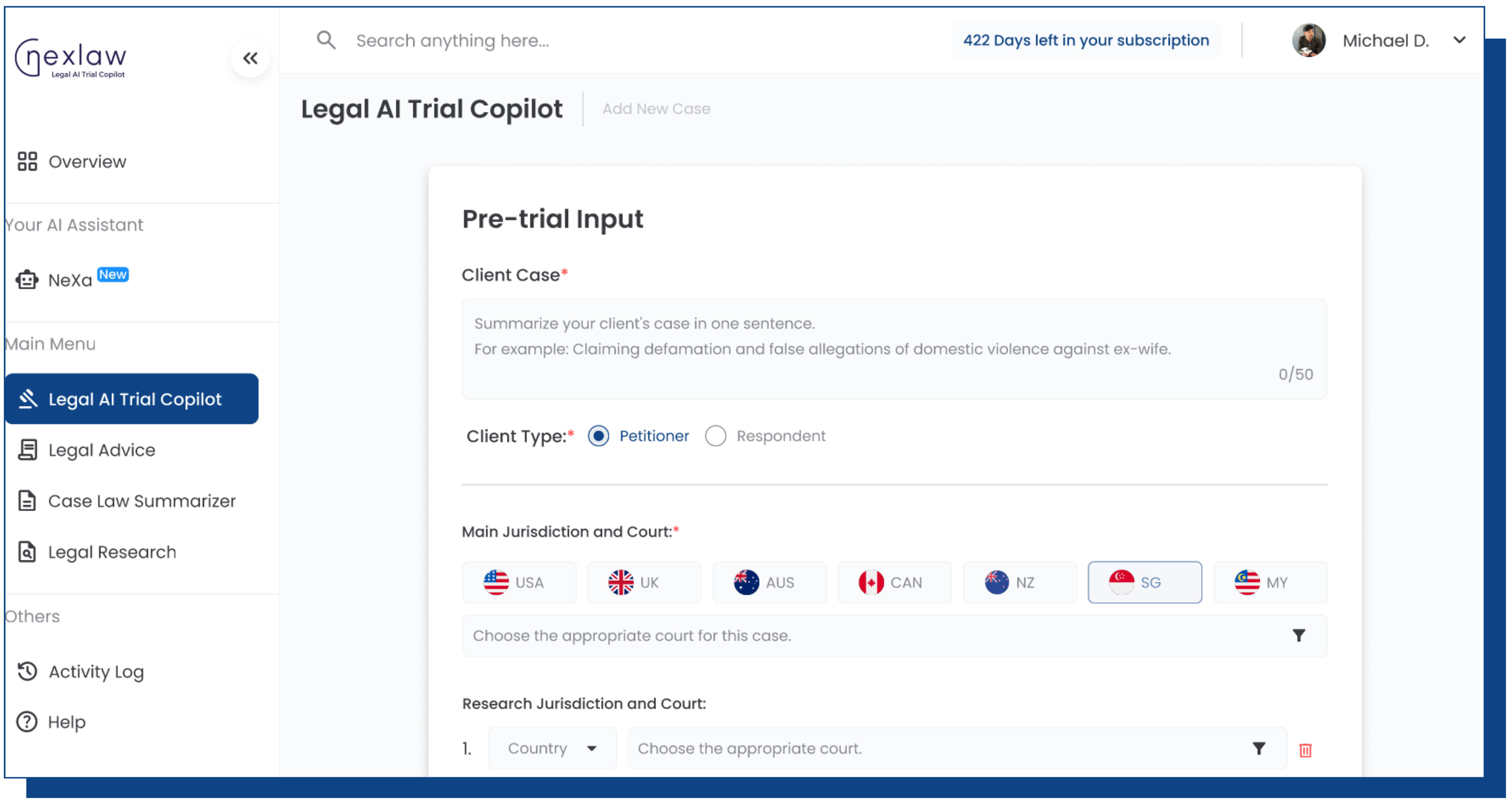



Enables efficient handling of complex tasks such as
- In-Depth Legal Research
- Document Analysis
- Deposition Preparation
See NexLaw in Action
Start your free trial and kick off your legal AI journey with a personalized demo
*By submitting the form, you agree to the Terms of Service and Privacy Policy
The legal industry is poised for significant growth in 2025, driven by an increasing need for specialized expertise in areas such as regulatory compliance, privacy, and litigation. As global commercial activity becomes more complex and technology continues to advance, the demand for legal services is expected to surge in sectors facing evolving compliance challenges, including:
- Commercial transactions
- Supply chain risk management
- Mergers and acquisitions (M&A)
- Drug pricing litigation
- SEC rulemaking
As regulatory shifts and market-driven changes continue to unfold, legal professionals with expertise in specific areas will be in greater demand. Lawyers well-versed in AI-related ethics and law, along with those equipped to handle emerging challenges in privacy, environmental law, and technology-related cases, will see an increasing need for their specialized skills. The evolving legal landscape is driving the demand for professionals who can navigate these complex and rapidly developing fields.
Several key legal fields are expected to see significant growth in demand, including:
- Administrative and regulatory law: With increased judicial scrutiny of agency powers, especially regarding the evolving "arbitrary and capricious" standard, this area is becoming more complex.
- Privacy law: As state-level privacy regulations continue to expand, they are filling the void left by federal inaction, driving greater need for legal expertise.
- Antitrust law: Intensified enforcement, particularly in the tech sector, indicates a sustained demand for antitrust specialists.
- Climate and environmental law: With corporations under greater pressure to meet climate goals and manage emissions, compliance and advisory services will be crucial.
- Health law: The growing legal challenges surrounding pharmacy benefit managers, coupled with drugmakers' struggles with state-specific drug pricing regulations, will increase the need for health law expertise.
In 2025, law firms will face several key challenges in balancing operational efficiency with employee well-being. Adapting to hybrid work models will be difficult, as firms try to optimize billable hours while maintaining office culture.
Diversity, equity, and inclusion (DEI) programs will also need to evolve in response to ongoing legal pressures. Despite the recognized need, the adoption of project management and knowledge management tools remains slow. Additionally, with a growing focus on mental health, firms will expand wellness programs and allocate resources to support lawyer well-being.
In-house counsel will be vital in managing organizational risks, particularly in response to evolving regulatory challenges. To strengthen supply chain resilience, corporate counsels are diversifying supplier networks and renegotiating contracts for greater flexibility.
Technology adoption, such as project management and compliance monitoring tools, will boost efficiency and responsiveness. Counsel will also focus on creating flexible contract arrangements to quickly adapt to shifting business conditions. Additionally, enhanced oversight in areas like climate reporting and AI regulation will be essential to align with corporate governance goals.
Most Attorneys Expect Associates to Have AI Knowledge
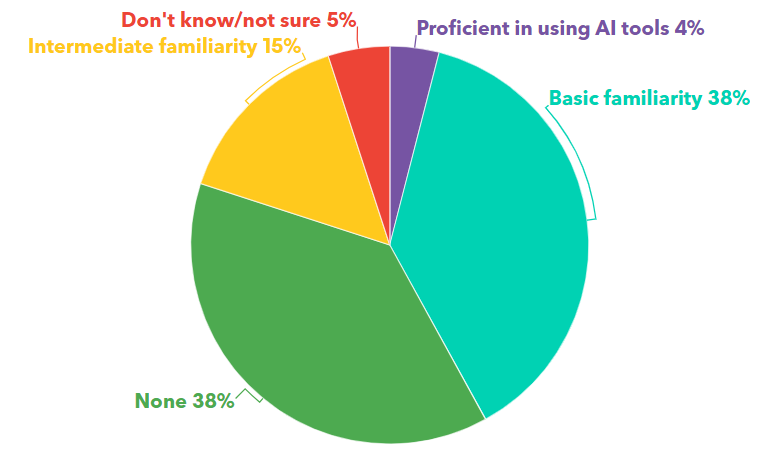

Source: Bloomberg Law’s Path to Practice Survey, conducted from April 29 to May 13, 2024
As artificial intelligence becomes increasingly integrated into the legal field, most attorneys now expect new associates to have a solid understanding of AI. With AI tools streamlining tasks like legal research, document review, and contract analysis, having AI knowledge is quickly becoming a crucial skill for emerging legal professionals. This shift reflects the growing importance of technology in legal practice and the need for lawyers to stay competitive in an evolving industry.

